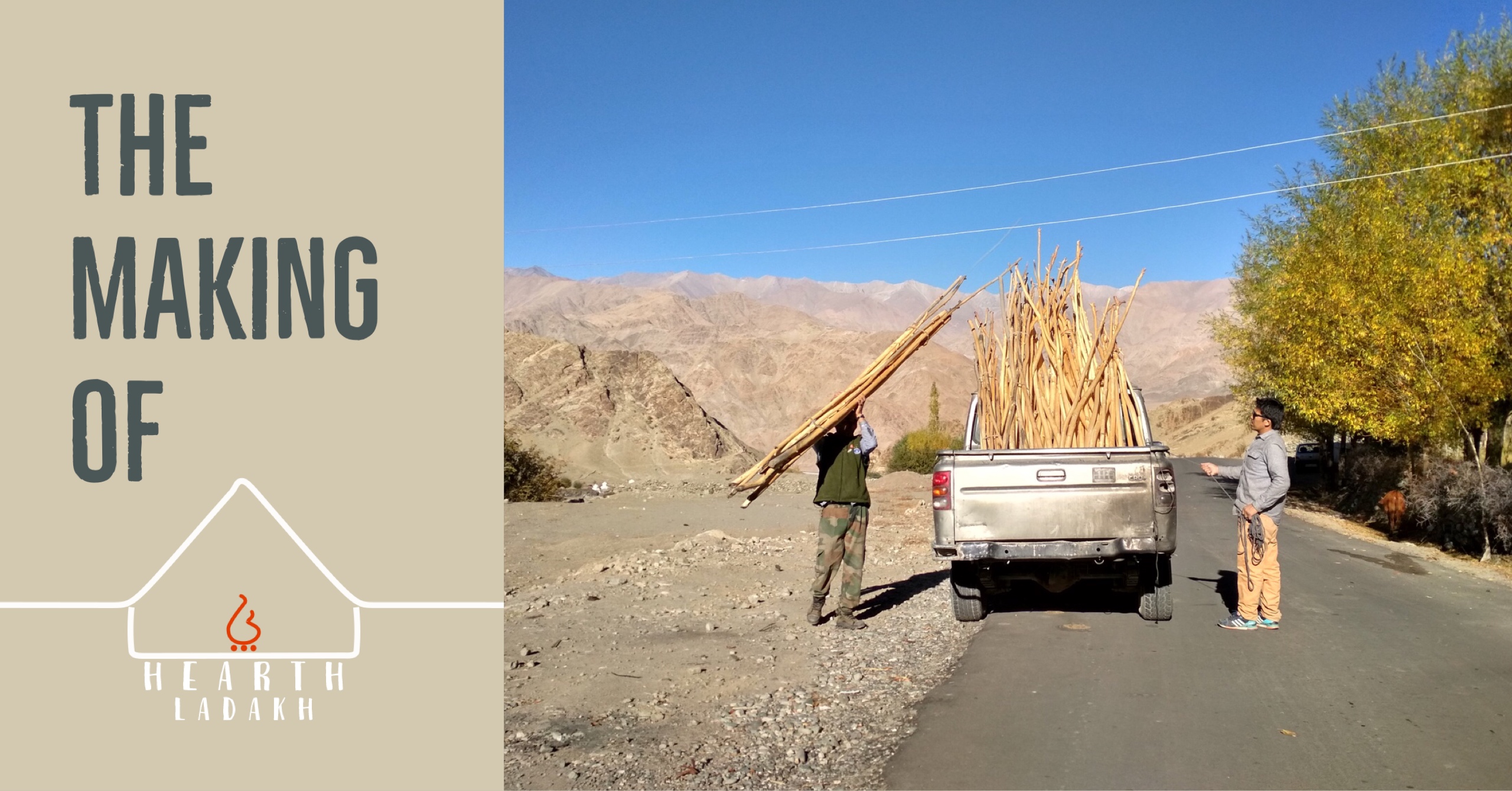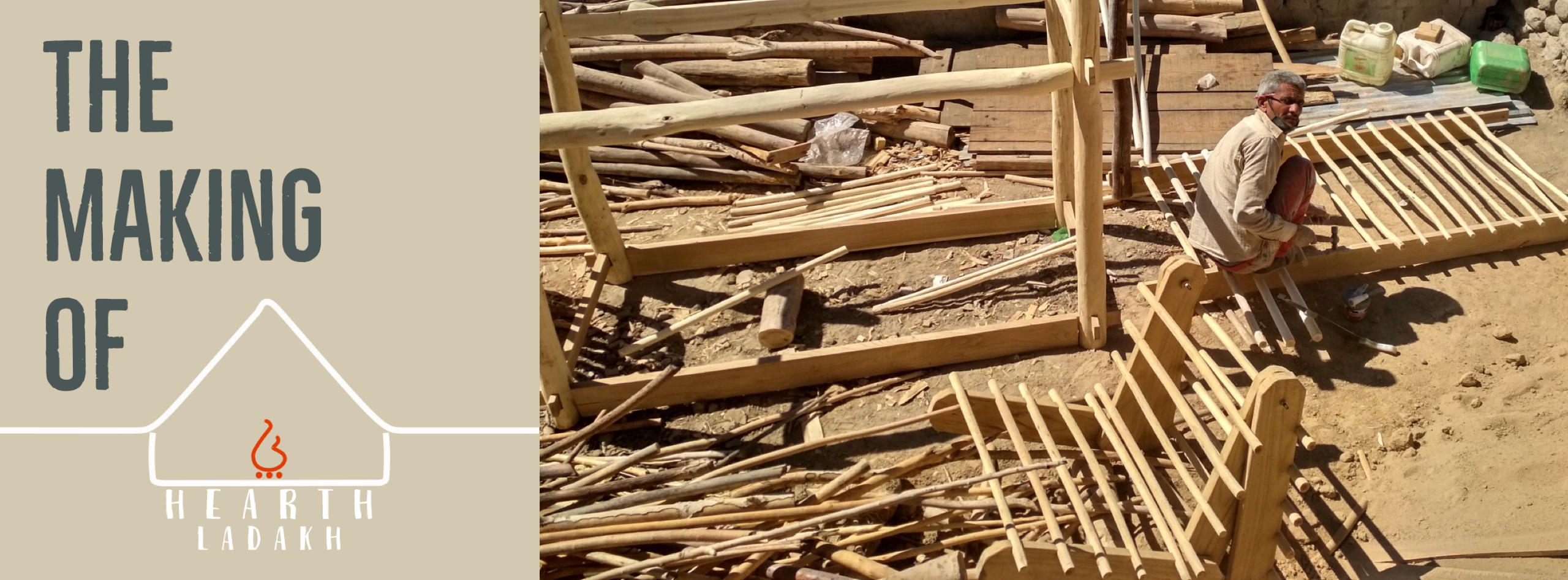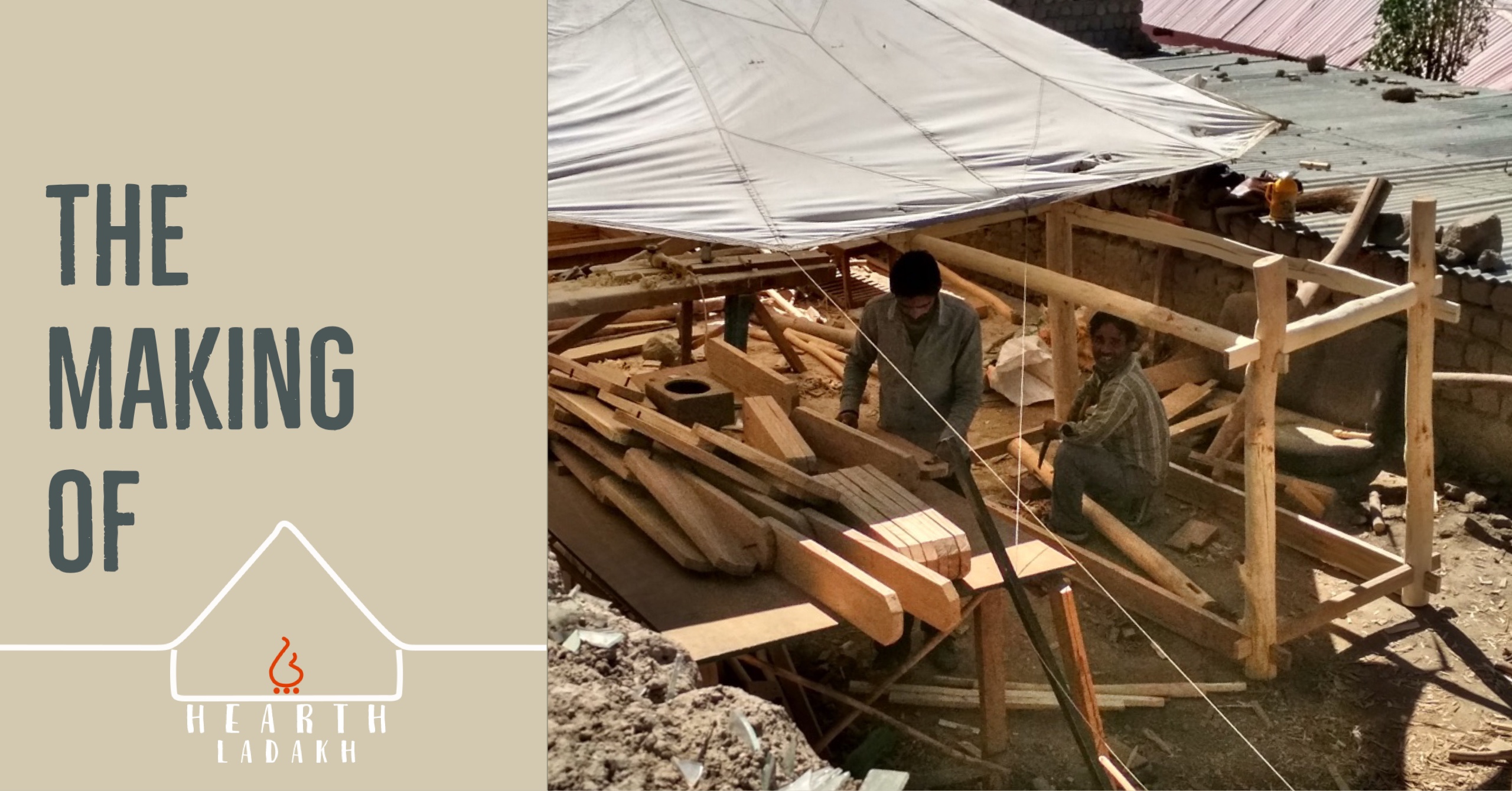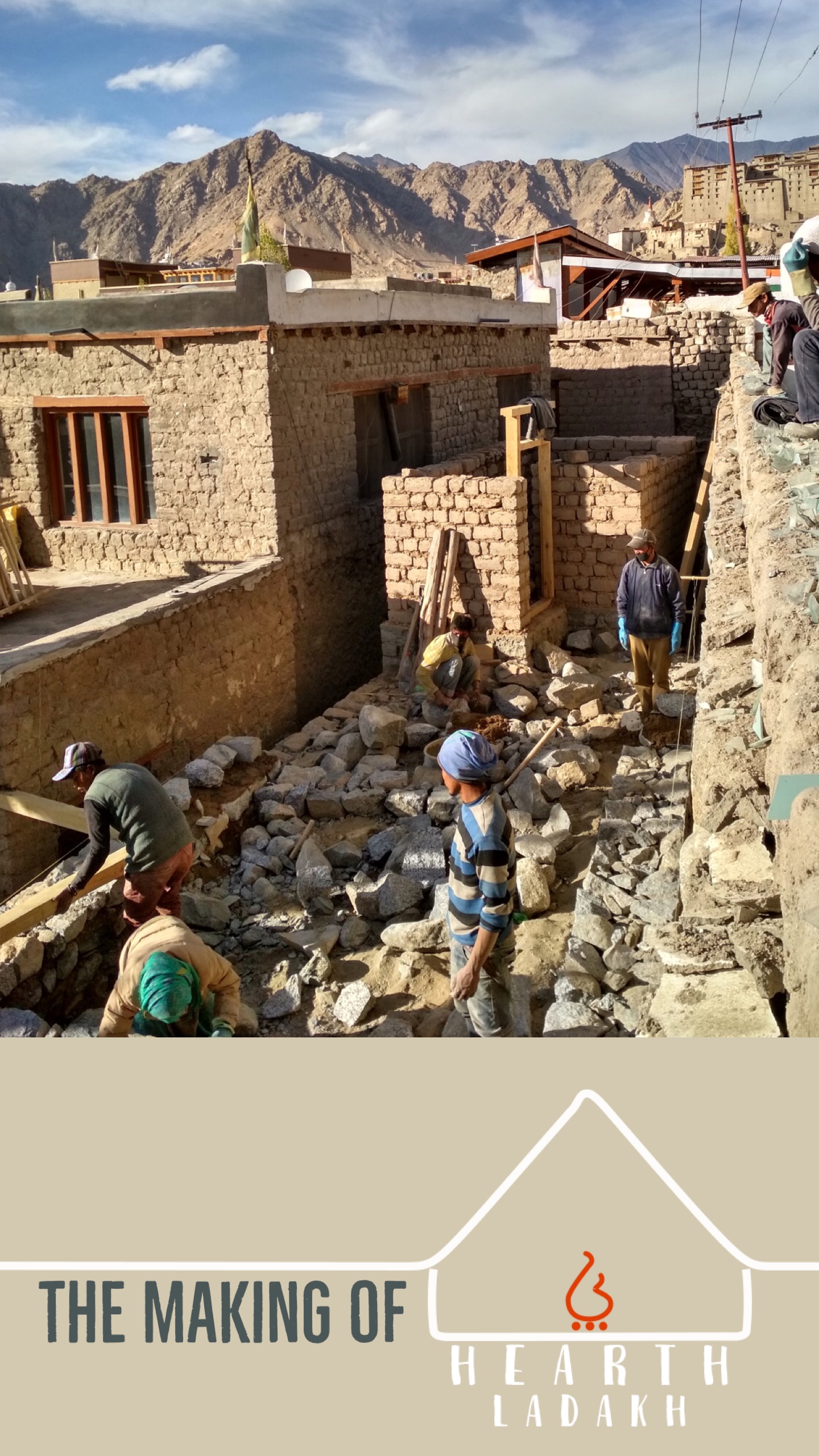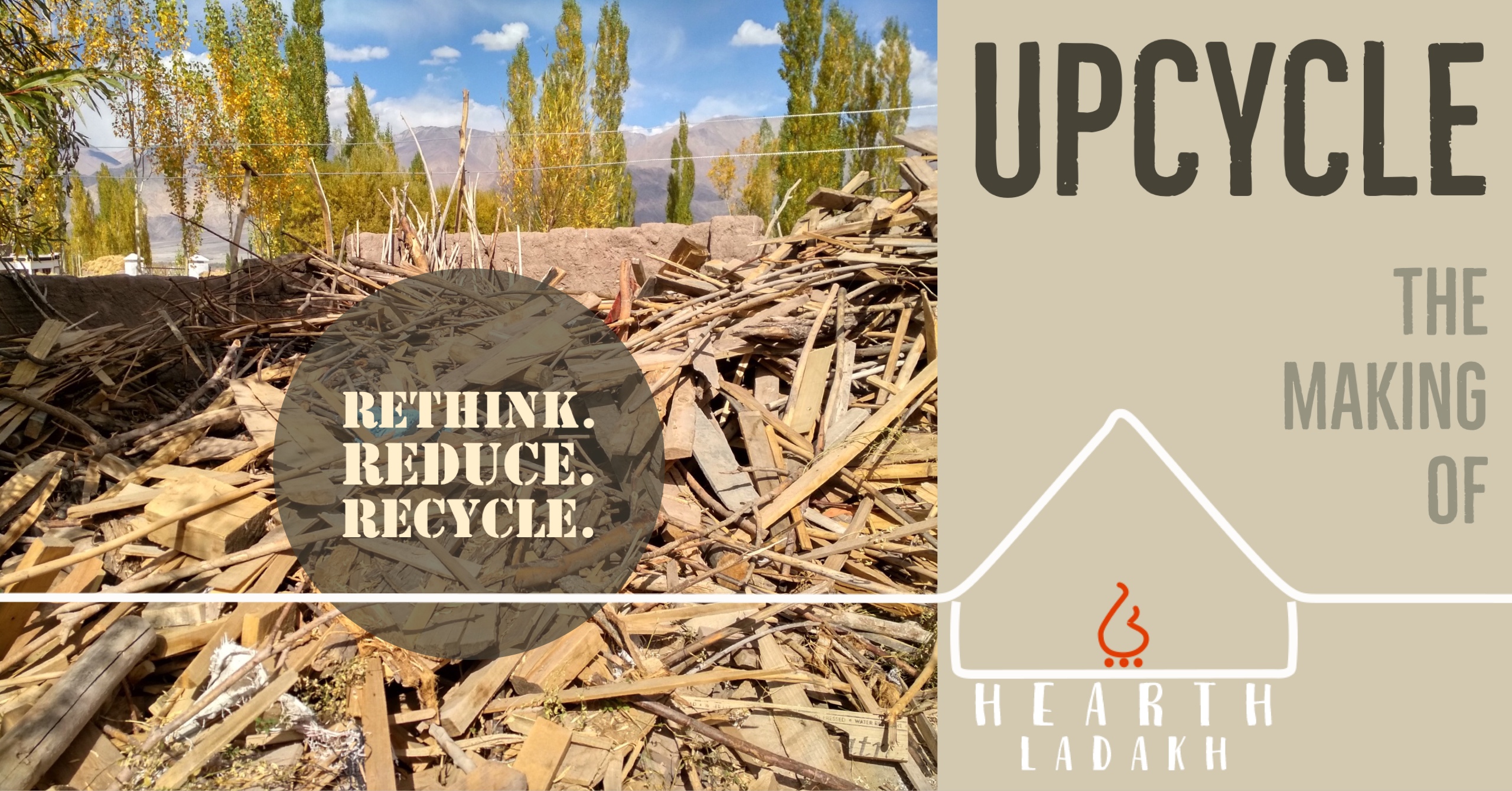HEARTH: AN ALTERNATIVE TOURISM INITIATIVE
Sustainability as it so frequently appears in literature is for safeguarding Earth’s resources, we want to find out what sustainability means to the tourism industry with Ladakh as an impact point. It is imperative for us to do so before we start our backpackers hostel (Leh) and homestay (Matho). We are conscious of setting up yet another lodging for tourists and dread contributing to the tourism led ecological and infrastructural chaos.
THE PROCESS OF ACQUIRING LOCAL MATERIALS FROM YOUR NEIGHBOURHOOD BRINGS YOU CLOSER TO THE PRODUCT.
Ladakh at an altitude of 11000+ ft is the only cold desert fragile eco system in India. Its bare minimum indigenous glacial water sources, wet lands and bio diversity are optimum only for consumption of its sparkly populated 3 lack locals (Source: 2011 govt census). Moreover the ancient knowledge systems of Ladakh centre around principles of ecological conservation and resources management, which is taken for granted by the standardised needs of tourism and hospitality industry.
For example, more than 200 hotels and guest houses in Ladakh are supplying an average ground water for 20 bathrooms each, for six summer months. These bathrooms are equipped with modern fittings like overhead showers, bath tubs and WC that dispense triple the amount of water than does a local bucket bath. If we take an average of 1 gallon for each bath we are using 21,60,000 gallons of ground water every season just for the guest bathrooms, not including maintenance and kitchen consumption.
The architecture of Leh today is overtaken by the easy finance led infrastructure growth with multi-storey hotels coming up at every corner leaving Leh. With no character of its own, it is as good as any other hill station.
LOVE WHAT YOU DO AND DO WHAT YOU LOVE AND LEARN THE ART OF CONSTANTLY ENJOYING EVERY MINUTE OF YOUR LIFE.
_Arch. B.V Doshi
When we started our project, we wanted to promote ecologically viable structures with locally available materials (preferably within 10 kms radius of the place) making sure these spaces engage both - the management and the guests - in values and practices of eco tourism. This turned out to be as farsighted in execution as it sounds in theory. Our first decision towards an ecological enterprise was looking at a possible restoration of our ancestral home into a small hostel than rebuilding a mammoth structure with foreign building materials like concrete slabs and ceramic tiles. Apart from its intrinsic value of strong stonewalls and local wood, an old building has local architectural elements that helps it to breathe like a timeless tree. Not to forget that restoration is as friendly to your pocket as it is for the neighbouring environment.
Our in-house architect and one of the promoting partner Ms. Purnima Das (who previously did her research on sacred architecture of Ladakh) was clear about it from the very start, that the ancestral house was not going down, not today, not forever. Her resilience and clarity was pivotal in seeding the idea of restoring the house into a backpackers hostel for like minded eco-friendly, earth-caring, fun loving travellers in the traveling community. So after an in depth research on restoration, tourism consumption patterns, implementation of guidelines and systems assuring optimal resource management we started Hearth hostel and homestay.
Measuring mud bricks and poplar sicks available in the vicinity as our basic building blocks and sketching possibilities of incorporating common spaces, restrooms and alleyways that are integral to our idea of spacing out the hostel marked our humble beginning of restoration. Most of the wood we sourced came from up-cycling piles of discarded furnitures, doors and windows from other construction sites, family backyards and military dump yards. We did procure fresh wood from the village in certain unavoidable situations but while doing so we made sure that no new trees were cut and these were organic exchange of surplus available with other households in Ladakh.
WHEN TEAM WORK MAKES THE DREAM WORK.
Purnima worked on the design, making ergonomic sense of converting a century old house into a hostel occupied by contemporary travellers with contemporary needs, like power sockets for each bed, a reading space, audio visual room, workshop area, workspace and socialising zones. Not to mention 4 baths and a community kitchen.
She spent hours drawing in her sketch book: switching entries here, expanding exits there, adding supplementary staircases to enhance common space approaches, conceiving bunk beds and lockers made of up cycled poplar branches. A space to host dinner for 50 hungry travellers with live music in the background was to be placed within a local Ladakhi kitchen.
By the time we had a basic restructuring design ready we had four carpenters working full-time on her drawings, a team of 12 local masons coming daily to restore the old house into a 30 bed backpackers hostel with traveling amenities we loved in the hostels we have stayed in.
As important it is for us to get the space right so it is to incorporate ancient local wisdom for resource management and latest technological advancement for energy conservation to assure a healthy traveling lifestyle for our guests.
WHAT DID ONE WALL SAY TO ANOTHER?
LETS MEET AT THE CORNER
_Arch. Anant D Raje
This brings me to the next phase of our project on operational utilities of our hostel and homestay. Apart from a spell bounding landscape, Ladakh also has 360 sunny days making it the most solar potential region in the country. We installed solar water heaters, back up power channels, parabolic cookers and charging units at both traveler projects through a battery bank in place.
Almost all the backpackers we met on our travels were judicial eco travellers who made sure they left minimum carbon footprints through their journeys, so we believe our concepts of waste segregation, compost pit, judicial water usage and offsite afforestation initiative will eventually make a difference in the way tourism is perceived in Ladakh. We believe that it is not only about implementing ecotourism systems in place that makes a difference, but the knowledge sharing and information dissemination that allow our initiatives to inspire similar projects to take up sustainable tourism as a quid pro quo.
A hostel or homestay is not just its structure but also the activities and traveling amenities for engagement of its travellers. For this we learnt from other similar running projects that guests opting to stay in hostels or homestays prefer sharing and social exchange to the luxury of a private room. For them travel is about having conversations with like minded travellers, planning further travels based on experiences of other travellers. We had to create an atmosphere at the hostel that encourages socialising, events that brings interest groups together and a vibe of freedom and expression that allows every traveller to be comfortable about themselves and open to share what they believe in. A space they can feel at home in doing what they like or nothing at all.
Instead to cramping the space with as many beds that can fit in, we have kept indoor and outdoor common spaces on each floor for our guests to play board games like scrabbles or chess. They can choose to pick up a book from our collection or enjoy movie screenings in the evening. We have a designated exhibition space for artists and idealists to showcase the beauty they found in the world. A small garden with flowers and trees keeps the cityscape off and a wood workshop to constantly evolve our furnishings and create travel crafts. For any assistance in travel related logistics we have a travel help desk, money exchange and phone booth for our guests to make local calls to their friends staying elsewhere. We have display walls sharing ongoing attractions in town with weekly local bus schedules, procedures for getting a tourist permit and the days speciality from the kitchen. It has come up to be a space created by travellers for travellers.
Apart from a structural design to encourage casual engagements we thought it would be fun to have scheduled activities to share the local life around the hostel with our guests. For guests interested in enhancing their knowledge base, we have scheduled workshops and interesting talks on for different interest groups like photography shoots & Manual dark room processing, up-cycle furniture design, earth buildings, recycling, sustainable tourism and organic farming.
The traveling Pan is a bi weekly lunch program hosted at the community kitchenette for our foodie friends who live to eat and are ever ready to fold their sleeves up and throw open their culinary skills to make a delicacy from back home or an experimental dish inspired but their travels and share it with other travellers.
Our concept of heARTh residencies encourages artists traveling to Ladakh to create impressions of their local travels and exhibit in our ongoing exhibiting space.
Similarly for photographers and analogue lovers passing by, we have curated the red room exposè to process, share, teach and have fun with manual processing and in studio shoot while you stay with us. Our dark room is equipped with enlargers, chemicals and paper as an attempt to keep our love for analogue photography alive.
We also Screen-time three films (feature, art and documentary) every week to cinema bugs and environmental enthusiasts. These documentaries on environment are followed by talks by different environmental organisations working on these subjects.
Re-cycle is a program for cyclists to hire cycles from our pod and spread the message of carbon emission from motor driven commute. A portion of the collection from re-cycle goes to setting up cycle pods in local schools and public spaces.
THERE IS NO SUCH THING AS WASTE, JUST STUFF IN THE WRONG PLACE.
Apart from these in-house events we believe in building a better direction tourism in Ladakh can take, so that Ladakh as a destination is not promoted for its fancy hotels but for its eco friendly ways and age old cultural heritage. We believe that our initiative with 30 beds of change will eventually bring a wave of eco friendly travellers to experience Ladakh as it was back in the day when tourism had started in 1984.
Books like Ancient futures by _Helena Hodge and Peaks and Lamas by _Marco Pallis have deeply moved our perception of conservation and preservation of Ladakh as a fragile Eco system and we will work towards promoting hostels and homestays with a local essence against big hotels with bath tubs and its general luxury based tourism.
Author: Stanzin Namgyal
Photo Credits: Purnima Das
Tags: All Travel Eco-tourism Cold Desert Fragile Ecosystem Travelling-Ladakh-2018 Infrastructure Architecture-Local Upcycle Wood-workshop Leh-Ladakh

